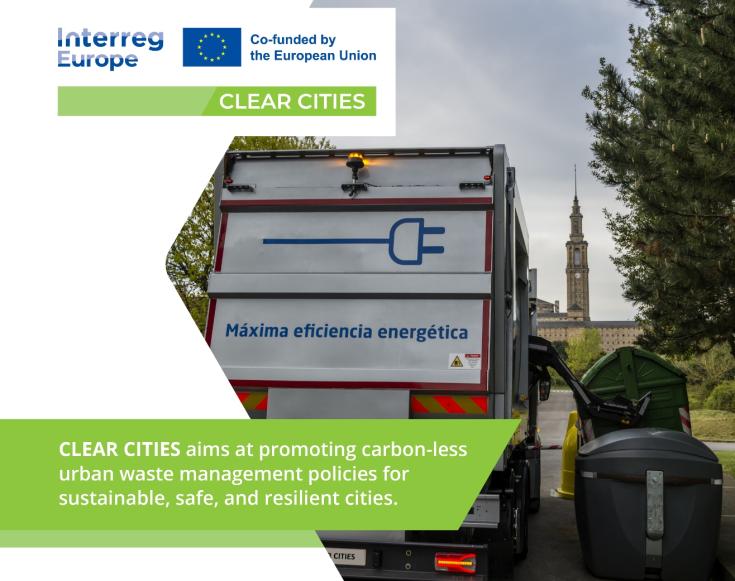CLEAR CITIES: Local Waste Management Policies

The Municipal Urban Environment Services Company of Gijón (EMULSA Medioambiente) is leading the European project “Clear Cities: Promoting carbon-neutral urban waste management policies for sustainable, safe, and resilient cities in Europe.” The project has a budget of €1,789,465, a development period from April 1, 2024, to June 30, 2028, and partners from cities and regions including:
- Apeldoorn City Council (Netherlands),
- Gothenburg City Council (Sweden),
- Langhe Monferrato and Roero Development Agency/Piedmont (Italy),
- Ljubljana Regional Development Agency (Slovenia),
- Ilfov/Bucharest Regional Development Agency (Romania),
- Burgas City Council (Bulgaria).
The objective of Clear Cities is to improve waste management policies to establish more efficient models with lower greenhouse gas emissions by exchanging experiences among partners at each stage of the waste management lifecycle: generation, collection, transportation, treatment and processing, and disposal. To achieve this, the partners, led by EMULSA, will work together to identify, share, and implement good practices focused on:
- Encouraging waste reduction and household and business recycling at the source,
- Promoting emissions reduction and operational efficiency in waste collection and transportation,
- Implementing improvements in waste separation and treatment systems to minimize landfill waste through increased reuse, recycling, and recovery operations,
- Exploring the integration of emerging technologies throughout the entire process.
All of this takes place within the unprecedented challenge faced by Europe in urban waste management to meet the ambitious goals described in the EU Waste Directives (2018/850-851). These include promoting the waste hierarchy (waste prevention, preparation for reuse, recycling, and other recovery forms), implementing the separate collection of specific waste streams, and meeting stricter recycling targets in a context marked by urban demographic growth and increased per capita waste generation stemming from current consumption patterns.
Although the waste management sector has successfully reduced GHG emissions in recent years, it is crucial to make greater efforts to prevent any potential setbacks caused by the growing demands imposed on the sector.
